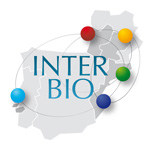
|
|
|
BIG12 Bioinformatics for Integrative GenomicsExploring and making sense of multidimensional data sets that result from merging heterogeneous genomic data resources |
|
IMPORTANT DATES for BIG12
|
Instructors: |
|
Abel Gonzalez-Perez obtained his PhD in Bioinformatics from the University of Havana, Cuba in 2006. He worked as a postdoctoral researcher at the Cuban National Bioinformatics Institute between 2006 and 2008. He has done comparative studies of the transcriptional regulatory networks of bacteria, and signaling pathways in eukaryotes. Since August 2010 he is a postdoctoral researcher at the Biomedical Genomics Group of the Universitat Pompeu Fabra. Currently, he works in the assessment of the functional impact of genomic variants, the identification of cancer driver genes and pathways and in the integration and analysis of various cancer genomics data. |
|
Michael P. Schroeder is a Biologist from the Universitat Pompeu Fabra. He has a Master in Bioinformatics from the Universitat Pompeu Fabra he is currently pursuing a PhD at the Biomedical Genomics Group of the same University. His main interests are the study of the effect of genomic alterations in cancer and the identification of functional relationships between cancer alterations. |
Affiliation:Universitat Pompeu Fabra (UPF), Barcelona, ES |
Course description:
The application of high-throughput technologies in medical genomics yields complex, multidimensional data sets that describe
in detail the myriad changes that occur within individual cells and how these changes differ between patients, cells or conditions.
Usually we want to use this data to answer some specific questions. For instance, which of the long list of mutations detected are
likely to affect the function of the protein and which are probably neutral? Which of the genes affected by those mutations are already
known to be involved in cancer or other diseases? Which pathways or biological processes are affected by the transcriptomic alterations
detected in my experiment? Etc.
|
Target Audience:The course is directed to researchers in biology and medicine. Background knowledge in bioinformatics is not necessary.Course Pre-requisites:Basic Molecular Biology. Elementary computing skills. |
|
Detailed Program |

In collaboration with INTERBIO
|
|
Instituto Gulbenkian de Ciência, Apartado 14, 2781-901 Oeiras, Portugal Last updated: March 23rd 2012 |